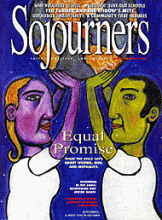In his landmark 1954 work The Technological Society, French writer Jacques Ellul argued that a feature of the modern world is the increasing centralization of control in the hands of an oppressive, bureaucratic, and all-powerful state through the use of technology. While this decidedly pessimistic vision of the future may have accurately described state politics during the Cold War, there is some reason to believe that certain forms of technology may actually be decentralizing power and questioning any absolute definition of state sovereignty.
An example of this is the staggering growth of the Internet. Originally created by the U.S. military as a sprawling, decentralized communications network capable of keeping various military facilities in contact during a nuclear war (and therefore, a perfect example of Elluls thesis), the tool of the Army has been hammered into a plowshare forwell, if not for peace, then for the (relatively) peaceful conquest of the world by multinational corporations.
But the fact that the Web is sustained on standard phone lines, coupled with the increasing affordability of entry-level computers, has made it very difficult for a single actor to control its content or development. Nowadays, all you need is a keyboard, a modem, and the "truth" to access what the average concerned citizen or small NGO could never have imagined a decade ago: a personal printing press and global distribution system. All of this is perhaps just another way of saying that not all technology is created equal, nor does it necessarily contain within it the way in which it is to be used.
Read the Full Article
